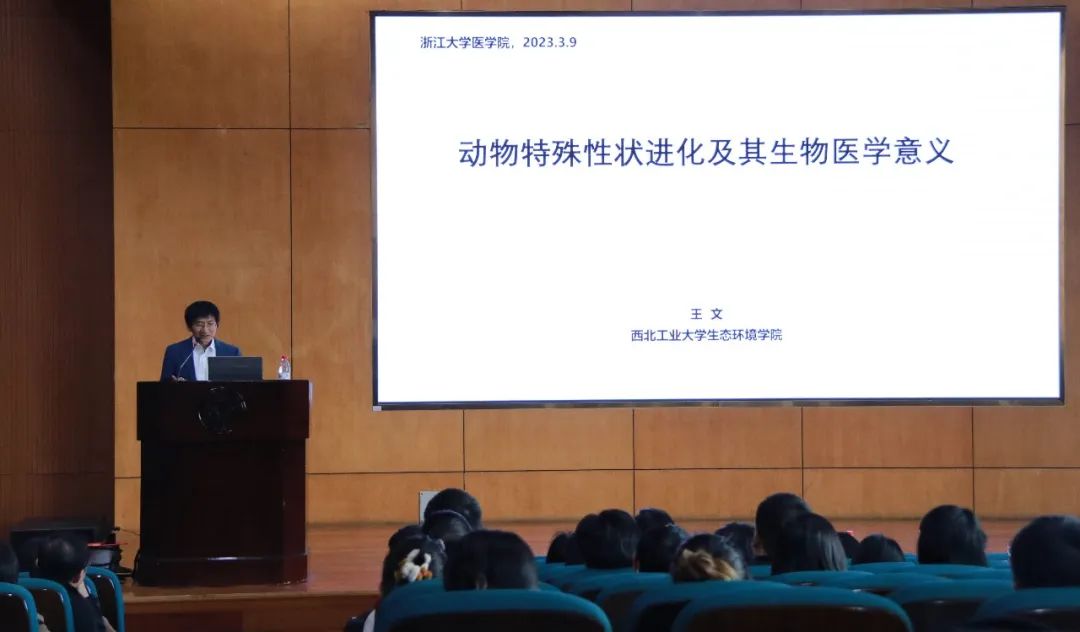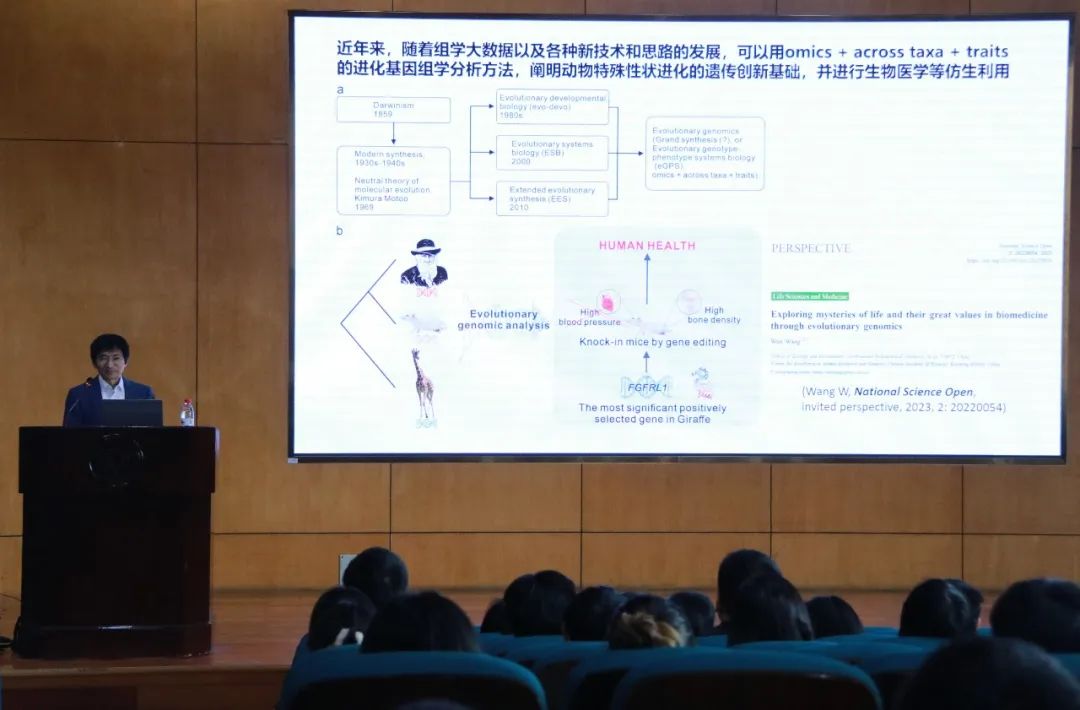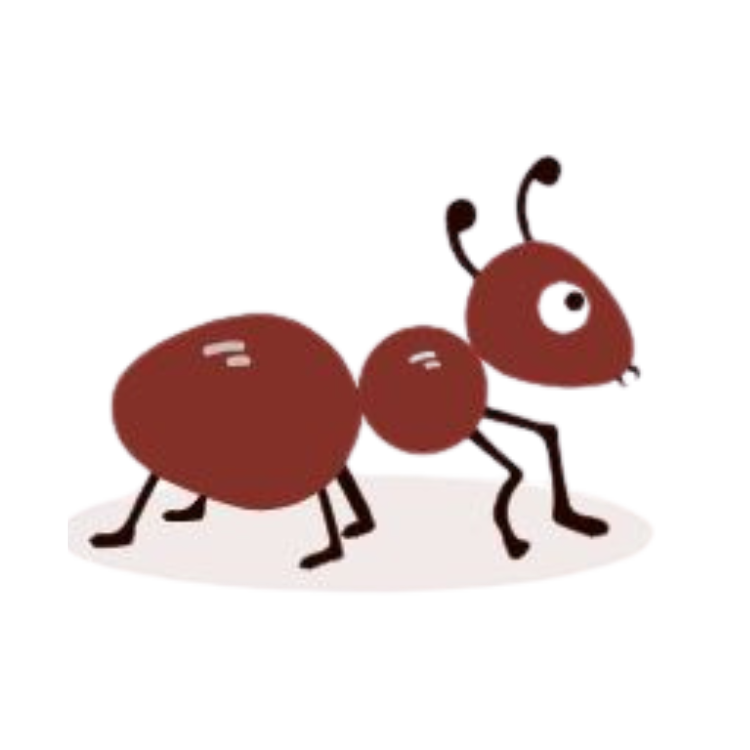03 / 09 / 2023
16:30 ~ 18:00
Lecture Hall in the Auxiliary building, SCHOOL OF MEDICINE
The whole school
Wen Wang: The Evolution of Unique Animal Traits and Their Biomedical Significance
Back to ListOn March 9th at 16:30, Professor Wen Wang from Northwestern Polytechnical University delivered an academic presentation titled "Evolution of Animal Unique Traits and their Biomedical Significance" at Zhejiang University. Professor Guojie Zhang from the Center for Evolutionary & Organismal Biology chaired the lecture.

Through millions of years of evolution, some animals have developed unique traits. Ruminant animals have evolved two distinctive organs, the rumen and bony antlers, in just over 30 million years of evolutionary history. Among them, antlers are the only organs in mammals capable of complete regeneration, and deer exhibit an exceptionally low cancer incidence.
The emergence of antlered ruminants occurred around 22 million years ago. Research by the Wang Wen team revealed that their tissue cells originate from neural crest cells. The rapid regenerative growth of antlers, driven by strong sexual selection, activates several cancer genes. The gene expression profile of deer velvet is closely related to osteosarcoma but significantly differs from other normal tissues. Further investigations unveiled a type of stem cell in the periosteum of antler pedicle, which, after shedding of old antlers, differentiates into a novel population of mesenchymal stem cells. These cells exhibit superior bone repair rates and osteogenesis compared to bone marrow mesenchymal stem cells in mice and rabbits. Comparative analysis with limb regeneration in salamanders, fin regeneration in fish, and fingertip regeneration in mice indicated distinct cellular molecular mechanisms for deer antler regeneration, suggesting diverse regenerative mechanisms in mammals.
In a potential counterbalance to the activation of oncogenes, antlered ruminants' tumor suppressor genes have undergone strong natural selection, resulting in their remarkably low cancer incidence. Studies on reindeer in the Arctic Circle suggest that key genes involved in vitamin D synthesis and metabolism, such as POR and CYP27B1, exhibit activities several times or even twenty times higher than those in other mammals. This heightened activity in conditions of extreme sunlight deprivation potentially ensures efficient calcium metabolism and absorption. Additionally, research on giraffes, a species within the giraffe family, has shown their extraordinary resistance to high blood pressure. Investigation of the gene FGRRL1, which has undergone strong evolutionary selection in giraffes, revealed that mice with this gene replaced rarely develop high blood pressure and exhibit significantly increased adult bone density. These findings offer novel perspectives for biomedical research involving ruminants as models in studies of regeneration, anti-tumor effects, high blood pressure, osteoporosis, and more. Related research has been published in journals such as Science, Science Advances, and Nature Communications.










